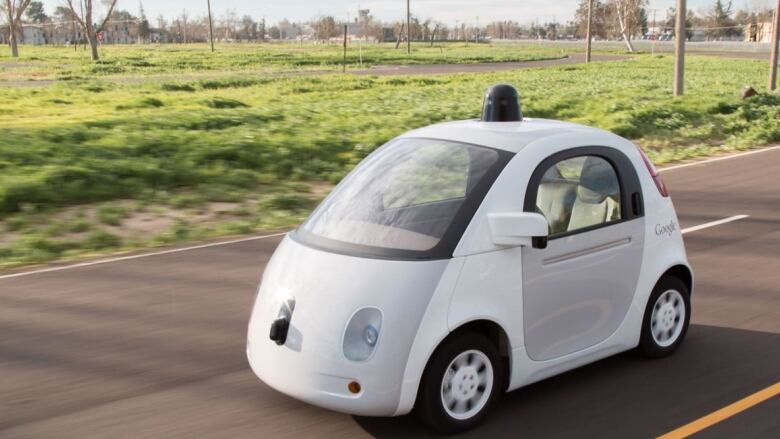Older male drivers most open to trying driverless cars, Calgary study suggests
University of Calgary study 1st in Canada to measure attitudes about automated vehicles

The first Canadian study measuring people's attitudes about driverless cars suggests men over 50 will be the most eager to give them a try.
"For me, the results of both age and gender were surprising and interesting," said the study's author Mahsa Ghaffari, a graduate student at the University of Calgary's Schulich School of Engineering.
Ghaffari set out to gauge the willingness among drivers to give up control to automated vehicles (AV), a technical innovation that many analysts say could soon transform the way we travel.
"When fully autonomous vehicles are available, drivers over 50 years old would be more willing to own and drive them for commute trips, and men in particular," she said.
Drivers with more than 35 years of experience were the most open to full automation, Ghaffari said.
She surveyed 485 men and women across all age groups over 18 in Calgary and Edmonton for her study.
Her paper revealed that a majority are willing to accept AVs to some extent, "based on perceived benefit, cost and convenience, as well as various levels of automation."
Drivers who said they enjoy driving, or who admitted they are aggressive behind the wheel, were the least likely to be enthusiastic about AVs.
The study found 81 per cent of respondents are willing "to a very high degree" to let a computer choose their routes, 43 per cent are willing to allow control of lane keeping, and 40 per cent don't mind ceding control over speed.
Drivers who have children were, on the whole, less enthusiastic about AVs, the study found.
It also shows that people have many concerns about how AVs will perform in bad weather and in unexpected situations like a child running into traffic.
Overall, Ghaffari said the study shows people in Calgary and Edmonton are cautious but curious about the possibility of a driverless future.
The research wasfunded by the Urban Alliance Professorship and by the AMA/AITFSmart Multimodal Transportation Systems strategic fund.
- MORE CALGARY NEWS|Should Alberta let the sun set on daylight saving time? Have your say online
- MORE CALGARY NEWS|Derek Fildebrandt launches United Liberty group












_(720p).jpg)


 OFFICIAL HD MUSIC VIDEO.jpg)
.jpg)



























































































